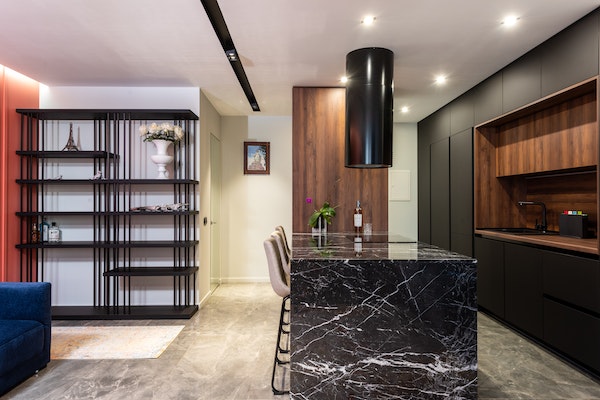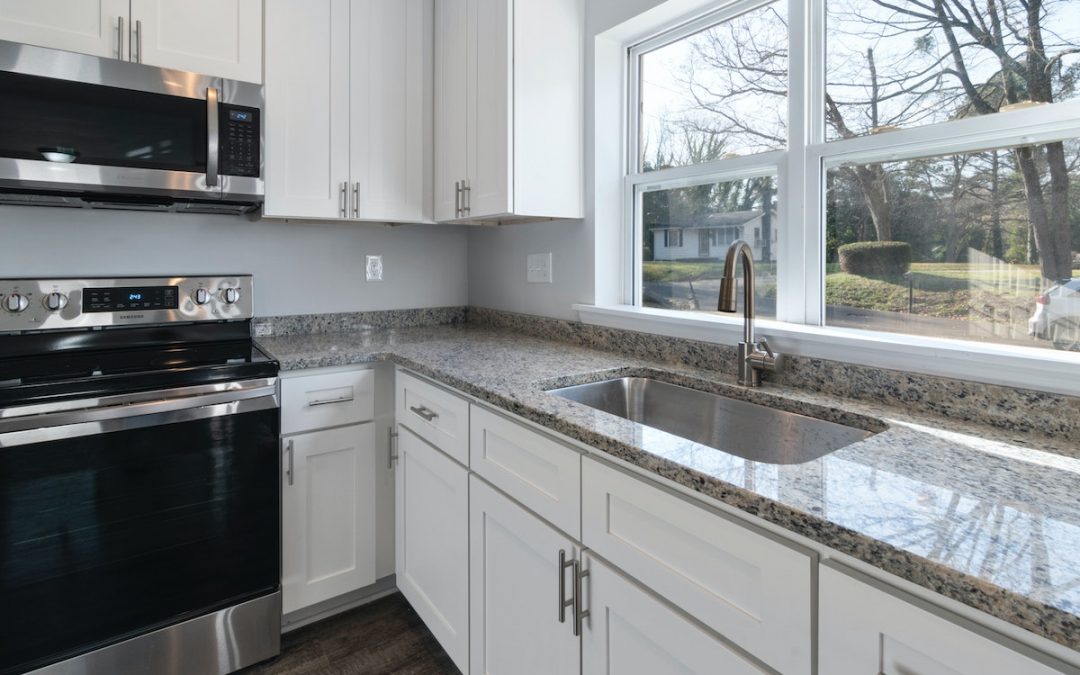The strength and resilience of this material make it a popular option for homeowners. Granite has a wide range of uses in the house, from granite countertops to tile flooring. Granite surfaces are gorgeous thanks to their gleaming sheen and distinctive range of patterns and colors. However, when splashed with abrasive stains, the sumptuous and shiny appearance is diminished. Learn how to keep granite’s natural beauty by removing hard water stains from it.
Granite is one of the simpler surfaces to keep clean, but it is still prone to stains, particularly those caused by hard water. Although mild soap and water are the finest cleaning solution for granite, this method doesn’t always get rid of stubborn mineral deposits.
Additionally, some cleaning methods and substances that help clean granite frequently harm it. To remove water rings and deposits from stone countertops, applying the appropriate home cleaners is crucial.
Using Baking Soda To Remove Water Stains From A Granite Countertop
Try using baking soda if soapy water is unsuccessful in removing hard water deposits from granite or water stains from glass. This non-toxic, slightly abrasive powder works well to remove water stains from granite countertops.
Granite Water Spot Removal with Talc
A granite headstone can benefit from using talc, a mineral powder, to get rid of hard water stains on many granite surfaces. Although it involves some patience and labor, this method is effective for removing mildly difficult stains.
Granite Water Ring Removal Using a Brillo Pad
Water stains on marble, granite and other stone surfaces can occasionally only be eliminated by gently washing the surface. To avoid harming the granite, we advise utilizing this method as a last resort. In order to remove part of the crusty residue from a thick and crusty water deposit without damaging the granite countertop, try using the edge of a razor blade or scraper.
Learn How To Use A Poultice To Remove Hard Water Stains From Granite.
A poultice is a typical remedy for getting rid of water stains from a granite counter, tile, or worktop. Although this method is quite successful, it takes some time before you see results.
Just enough hydrogen peroxide and flour should be combined in a bowl to create a thick mixture. To apply the plaster to the water spots, use your fingers. A piece of the plastic wrap should be torn off, placed over the stain, and then taped in place with painter’s tape. Remove the tape and plastic after giving the paste roughly 24 hours to work.
Wipe the area free of any residue by soaking a cloth or towel in warm water. The area should be washed with fresh water and dried with a soft towel. Try using a razor blade or a soft Brillo pad to gently scrape away stubborn water rings around a faucet caused by hard water that has built up on the surface, followed by wiping away the residue with a soft, wet towel (read more).
You can also try applying a poultice or extractor to tough spots. A hardware or stone surface specialist store may provide poultice materials explicitly created for granite, or you may choose to manufacture your paste using water and baking soda. The thick, pasty substance should be liberally spread before being wrapped in plastic and edged with painter’s tape. Allow it to sit for at least 24 hours before scraping off the paste and giving the countertop a water rinse.
Clean up spills as soon as they happen since acidic substances like soda, household soap, alcohol, orange or lemon juice, can break down the sealant and stain the surface. Use water, mild soap, or a natural cleaner made especially for stone for daily cleaning. Abrasives or acidic cleaning supplies might harm the sealant on your countertop. Wash the stain with water and a mild detergent to get rid of the water stains. Lightly scrub the stain with a soft-bristled brush. Dry after rinsing with clean water.

Maintenance of Granite and Prevention of Water Stains
Never wait to clean up spills, whether they involve coffee, lemon juice, or water. Some of these liquids create water stains on your granite and harm the sealant. To stop condensation from dripping onto granite counters, keep coasters and use them anytime you drink a glass of water.Granite counters should not be cleaned with harsh chemicals like bleach because this solution damages the sealant. Avoid using lemon or vinegar to wipe the counter. These acidic liquids scratch the granite’s surface and dissolve its minerals. For general cleaning, use a mild cleanser and avoid abrasives like steel wool.
Looking for help getting your granite countertop cleaned? We take pride in working side by side with you to guarantee the finished product is what you imagined at a price you can afford, whether you’re looking to get it cleaned or any help you will need with your granite. You can always contact us through our website here: https://pioneergraniteandquartz.com/

